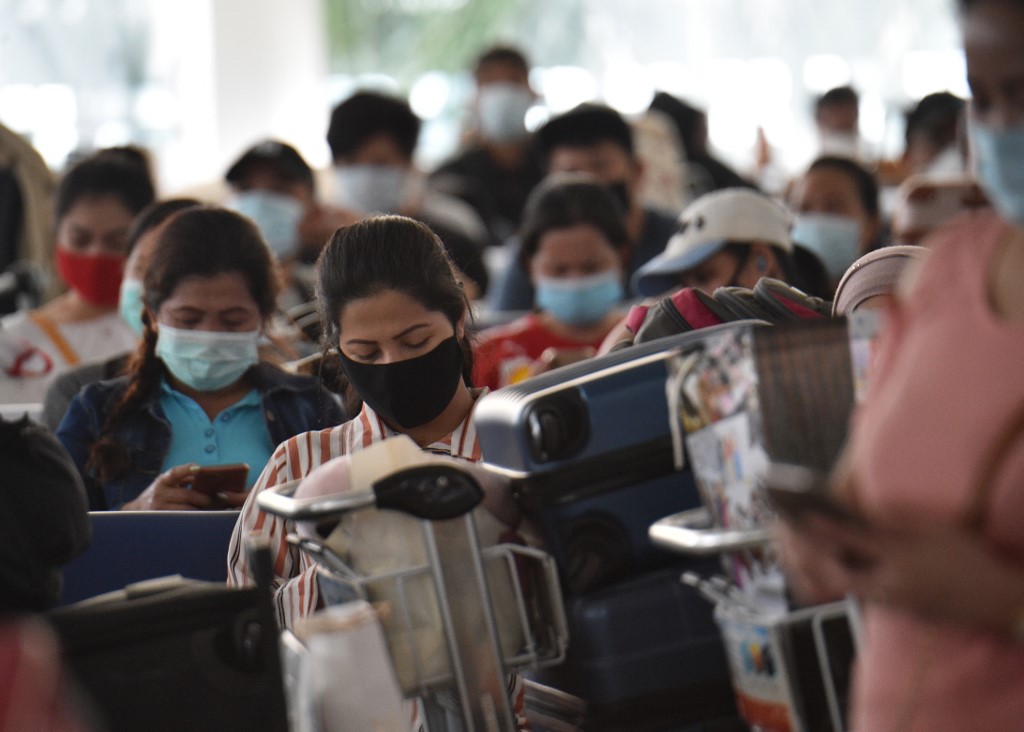
Philippine overseas workers who were quarantined for weeks after returning home wait for flights back to their home cities around the country, at Manila’s international airport on May 28, 2020. (Photo by Ted ALJIBE / AFP)
MANILA, Philippines — The return of locally stranded individuals (LSIs) to their home provinces couldn’t be blamed solely for the spike of COVID-19 cases in the provinces as there are many factors to consider, the Department of Health (DOH) said Tuesday.
Health Undersecretary Maria Rosario Vergeire said the government is careful in the screening of stranded individuals as they need to secure first a certification that they do not have any contact with a COVID-19 patient and that they are not probable, suspect or confirmed carriers of the disease before they could return home.
Stranded individuals are also mandated to undergo the mandatory 14-day quarantine upon arrival at their home provinces, Vergeire added.
Those who had recovered after contracting the respiratory disease will only be allowed to go home if they are not exhibiting any symptoms.
“Marami pong factors ang puwede nating i-consider kung bakit tumataas ang kaso sa ilang probinsiya. Hindi natin masasabi as a matter of fact na LSIs ang dahilan ng pagtaas ng datos,” Vergeire said in a televised press briefing.
(There are many factors that we can consider why the case is rising in some provinces. We cannot say as a matter of fact that LSIs are the reason for the increase in data.)
Local officials have raised the alarm after recent cases COVID-19 in the Visayas involved returning overseas Filipino workers (OFWs) and residents stranded elsewhere.
Presidential spokesperson Harry Roque said in a television interview that the government had been caught off guard by the returning residents and had been unable to prepare for them, unlike in the case of repatriated OFWs.
The government had suspended the transit of LSIs in at least five places in the Visayas and Mindanao to address concerns of local officials about the spread of COVID-19 in their provinces.

